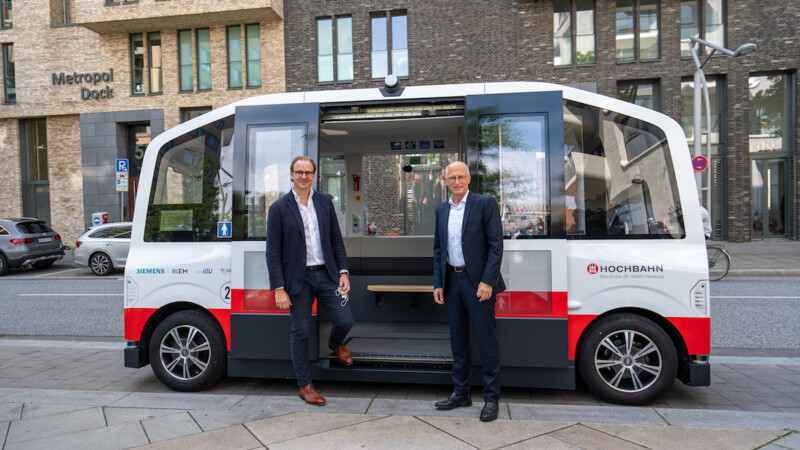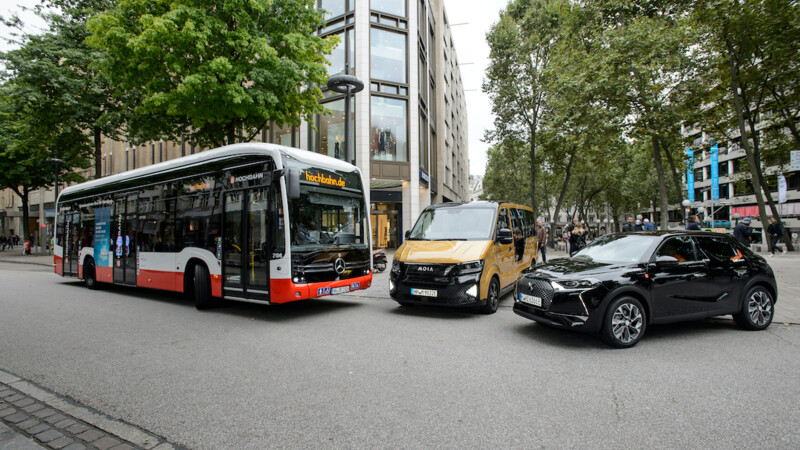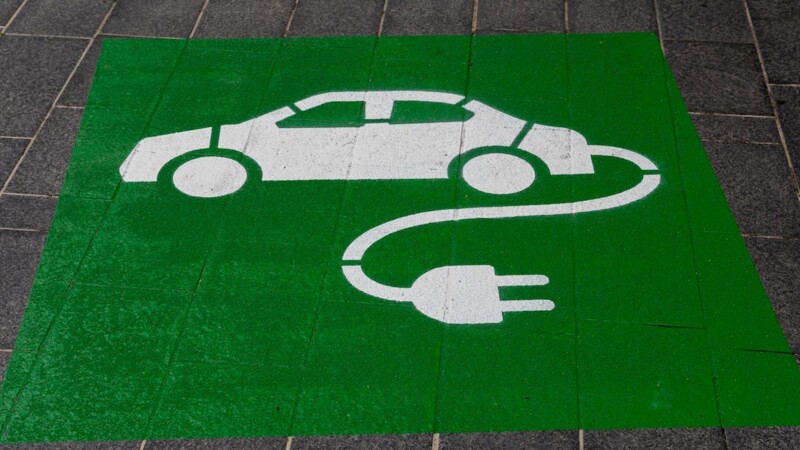The project has great potential for Hamburg as a transport centre, according to Anjes Tjarks, Senator for Transport. Emphasis is on connections to local transport in the outer parts of Hamburg. "Done properly and jointly, the autonomously driven MOIA vehicles can become a key piece of the puzzle to give Hamburg's outer districts closely timed, on-demand local transport and make the mobility transition tangible." The City of Hamburg began researching autonomous transport in 2018 with the HEAT minibus in HafenCity, which is now in the final phase.
The ride-sharing service MOIA has announced plans to add autonomous vehicles to its fleet and would see driverless buses operate on public transport routes from 2025. Tests will be undertaken in Winterhude, Uhlenhorst and Hohenfelde with surveys of the test area by the end of 2021.
Autonomous vehicles to improve links to outlying areas
MOIA pilot project - model for global transport
Robert Henrich, CEO of MOIA, remarked: "Autonomous ride-sharing can improve urban mobility, increase road safety and make cities more liveable ." Argo AI, a company specializing in AI software for autonomous driving, and Volkswagen Commercial Vehicles are also involved in the project. The aim is to to develop a scalable, autonomous ride-sharing system for cities across the globe, he added.
Survey before late 2021
"We are laying the foundations for developing and testing technologies and operational processes along the multi-layered value chain of a mobility service in Hamburg," said Christian Senger, Head of Autonomous Driving at VW Commercial Vehicles. Surveys of roads in the test area, east of the Alster, will begin in late 2021. The vehicles will be operated manually initially. Test drives with and without passengers will follow by 2025.
tn/sb
Sources and further information
More
Similar articles

All aboard as autonomous HEAT bus enters last phase

Reallabor Hamburg undertakes pilot study on commute

Hamburg draws positive interim balance of e-taxi funding
